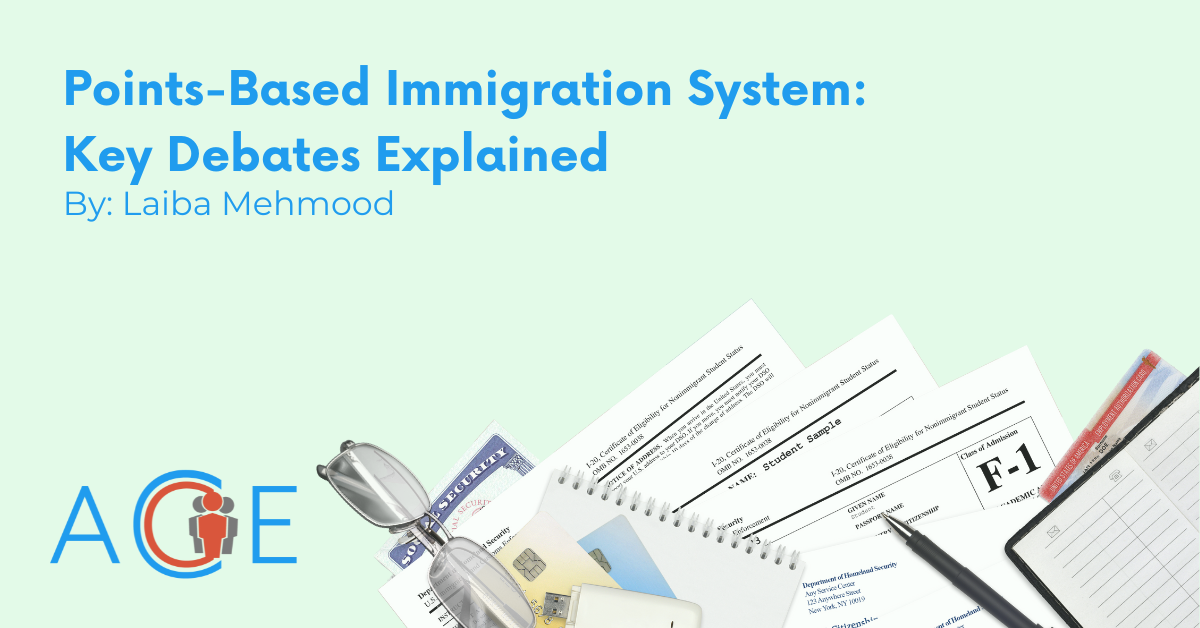Introduction and History
The Alien Enemies Act (AEA), enacted in 1798 as a part of the Alien and Sedition Acts, grants the President the authority to detain, apprehend, and deport noncitizens from nations deemed hostile during times of declared war or invasion. While war can only be declared by Congress, some believe a rhetorical reading of “invasion” leaves a legal gray area for the executive branch to invoke the AEA in the absence of a physical invasion or declaration of war. The law gives the executive branch power to manage national security concerns via the detention and deportation of foreign nationals without judicial oversight.
The AEA passed during a period of heightened tensions between the United States and France, with the United States facing threats of foreign influence, espionage, and internal dissent. It has been invoked three times throughout U.S. history: during the War of 1812, World War I, and World War II. The AEA is most notorious for its role in creating Japanese internment camps after the Pearl Harbor bombing of 1941.
The broader Alien and Sedition Acts received criticism for suppressing political opposition, particularly against immigrants from nations deemed hostile. While most of the Alien and Sedition Acts were either repealed or left to expire under President Thomas Roosevelt, the AEA remained in place and was expanded in 1918 to include women. While the AEA itself has been invoked sparingly by U.S. presidents, its broad language has left room for interpretation and debate today.
Recent Developments
During his 2024 presidential campaign, President Donald Trump pledged to invoke the AEA as part of Operation Aurora, an initiative aimed at addressing immigration issues and criminal networks. In line with this plan, President Trump released executive orders that categorized immigration as an “invasion” and designated certain drug cartels as foreign terrorist organizations. Some legal scholars believe that by classifying these cartels as state actors, the Trump administration is seeking to create legal justification for future use of the AEA to deport individuals from Mexico and other regions deemed hostile to national security.
In response to concerns over potential executive abuse of the AEA, Representative Ilhan Omar (D-MN) and Senator Mazie Hirono (D-HI) introduced the Neighbors Not Enemies Act, a legislative effort to repeal the Act entirely.
Arguments in Favor of the Alien Enemies Act
Supporters argue that the AEA is a vital tool for safeguarding national security, particularly during times of war or crisis. By allowing for the swift removal of individuals from hostile nations, the Act is seen as a preventive measure against espionage, sabotage, or other threats. Some proponents also contend that mass migration could provide cover for criminals, terrorists, or spies seeking to infiltrate the United States, making strict enforcement of the AEA a necessity.
Proponents also highlight the potential use of the AEA in dismantling transnational criminal organizations operating within American borders. Targeting noncitizens involved in illicit activities, including drug trafficking and organized crime, is seen as a means of enhancing public safety. Some argue that strict enforcement of the Act can serve as a deterrent against illegal immigration and unauthorized criminal activity.
From a policy standpoint, strong border control measures are often considered essential to maintaining national sovereignty. Advocates for the AEA argue that it falls within the President’s constitutional duty to protect the United States from foreign threats, and contend that the political question doctrine prohibits courts from intervening if the President decides to invoke it. They also assert that transnational criminal organizations meet criteria for the constitutional definition of “invasion”, justifying an invocation of the AEA in modern times. The AEA’s potential to bypass local sanctuary city policies, which may limit cooperation with federal immigration enforcement, is another reason some advocate for the Act’s use today.
Arguments Against the Alien Enemies Act
Critics argue that AEA violates several fundamental rights, particularly the Fifth Amendment right to due process and the right to be free from indefinite civil detention. They point to the AEA’s ability to bypass standard immigration court proceedings and deport individuals without hearings, arguing that the absence of judicial review leaves affected individuals with limited legal recourse. Experts note that this lack of judicial oversight could allow for large-scale detentions and deportations, opening the door to wrongful detentions nationwide. They argue that the lack of due process puts noncitizens and lawful immigrants at risk of being wrongfully detained or deported without the opportunity to defend themselves in court.
Another primary concern surrounding the AEA is the potential for discriminatory enforcement based on nationality. The Act applies not only to citizens of a hostile nation but to “natives” of a hostile nation, which includes those who were born in a hostile nation but have since renounced their citizenship from that state. In this way, the AEA explicitly allows discrimination based on ancestry. Given that past uses of the AEA led to the surveillance, kidnapping, and indefinite detention of residents based on their nationality, critics fear that invoking the AEA today would replicate the human rights abuses of the Japanese internment era and lead to widespread racial profiling.
Some legal scholars also criticize the Act’s broad allowance for executive action and vague definitions of security threats such as “invasion” and “predatory incursion”. They warn that these broad terms leave room for an administration to target civilians in times of peace. They highlight the Supreme Court’s 1948 Ludecke v. Watkins decision – which upheld President Truman’s use of the AEA for six years after the end of World War II – as a dangerous precedent that might allow future administrations to use wartime powers to attack civilians during peacetime if the AEA is not repealed.
Beyond legal and ethical concerns, critics emphasize that mass deportations under the AEA could have significant economic implications. Many industries, particularly those reliant on immigration labor, could face workforce shortages and disruptions. The potential loss of workers in agriculture, construction, and service industries could negatively affect local and national economies. Some economists warn that a mass deportation strategy could lead to increased costs for consumers, reduced productivity, and job losses for American citizens who labor alongside immigrant workers.
The Alien Enemies Act’s Future Prospects
Applying the AEA in modern contexts is likely to face legal challenges. Courts may be called upon to determine whether broad applications of the act align with constitutional protections and international human rights obligations. Given the potential for legal disputes, any large-scale innovation of the AEA would likely be subject to judicial review. Legal scholars suggest that any attempt to broadly apply the AEA, such as categorizing all foreign-based cartels as state actors, may struggle to hold up in court.
If the Trump administration or future administrations seek to implement the AEA extensively, congressional efforts to alter the Act’s provisions may also gain traction. The Neighbors Not Enemies Act represents one such effort to repeal the AEA outright. Alternatively, some lawmakers may push for reforms that introduce judicial oversight or limit the scope of the Act under modern legal standards.
Numerous civil rights and immigrant advocacy organizations have signaled their intent to challenge any broad use of the AEA. These groups may use litigation, public awareness campaigns, and lobbying efforts to limit the Act’s application or push for its repeal in the future. Public perception and media coverage will likely shape the discourse around the Act’s future.
Conclusion
The Alien Enemies Act, rooted in the national security concerns of 1798, continues to be a subject of debate in contemporary American politics. While some view it as a necessary tool for maintaining national security, others argue that it risks civil rights violations, racial profiling, and economic harm. As political, legal, and legislative battles unfold, the future of the Act remains unknown. The resolution of this debate will shape the future trajectory of immigration law, civil liberties, and national security policy in the United States for years to come.



